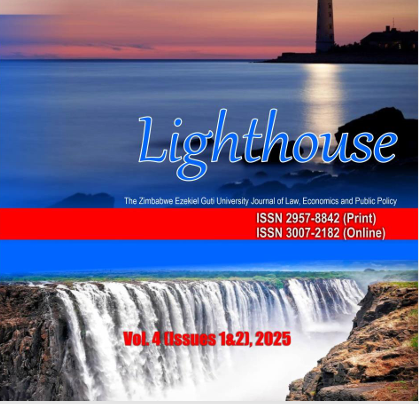Inter-governmental Fiscal Decentralisation and Equalisation in Zimbabwe: Problems, Alternatives and a Model Proposal
DOI:
https://doi.org/10.71458/5y1e7j43Keywords:
local government, finance, policy, constitutionalism, equity, resource mobilisationAbstract
The article critically explores intergovernmental fiscal decentralisation and equalisation arrangements in Zimbabwe, focusing on the historical evolution from the colonial era to the post2013 constitutional framework. The major question is: To what extent has fiscal decentralisation in Zimbabwe facilitated equitable resource distribution and enhanced local governance autonomy? It examines the structural, legislative and political challenges that have hindered the effective implementation of decentralisation, particularly concerning fiscal management. The 2013 Constitution introduced provisions for devolution aimed at redistributing resources more equitably and granting local authorities greater autonomy. However, significant obstacles remain, including persistent vertical and horizontal fiscal imbalances, where local governments are either underfunded relative to their responsibilities or unequally resourced due to regional disparities. The study employs a qualitative research approach, incorporating policy analysis and comparative case studies from Germany and Australia. The article also discusses the role of devolution in promoting equitable development across regions, emphasising how insufficient financial autonomy and delayed legislative reforms have limited progress. By drawing on comparative analyses and best practices, the article proposes a model tailored in Zimbabwe‘s to socio-political context strengthen fiscal decentralisation. The article offers recommendations for aligning Zimbabwe's constitutional mandates with effective fiscal policies, ensuring equitable distribution of resources and fostering sustainable development across all regions.




